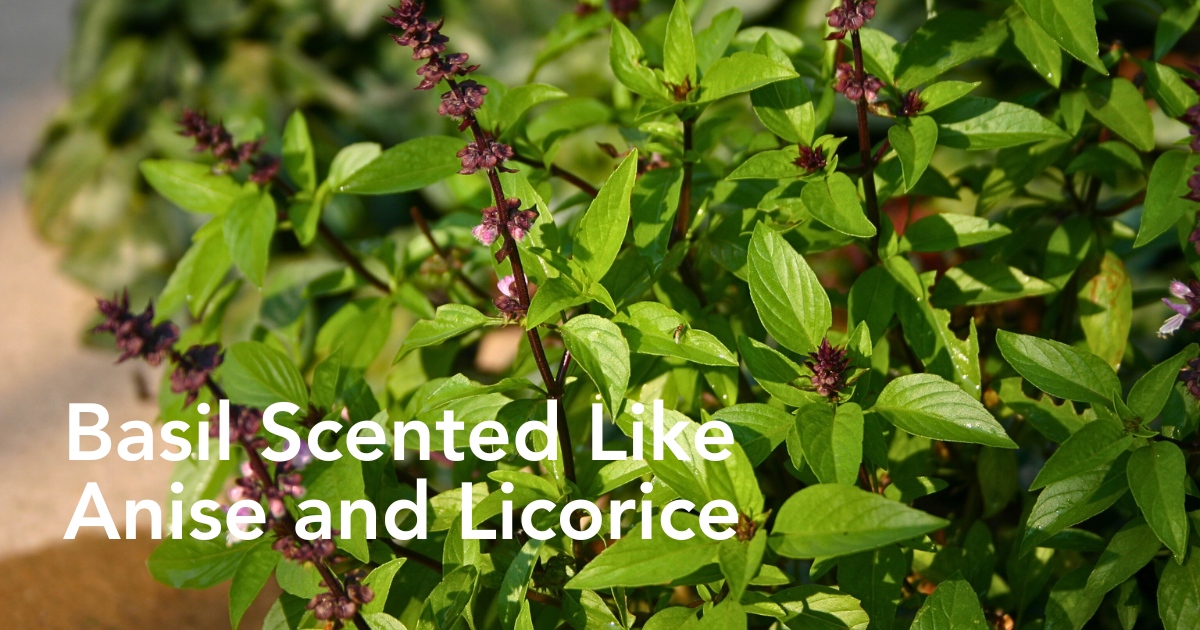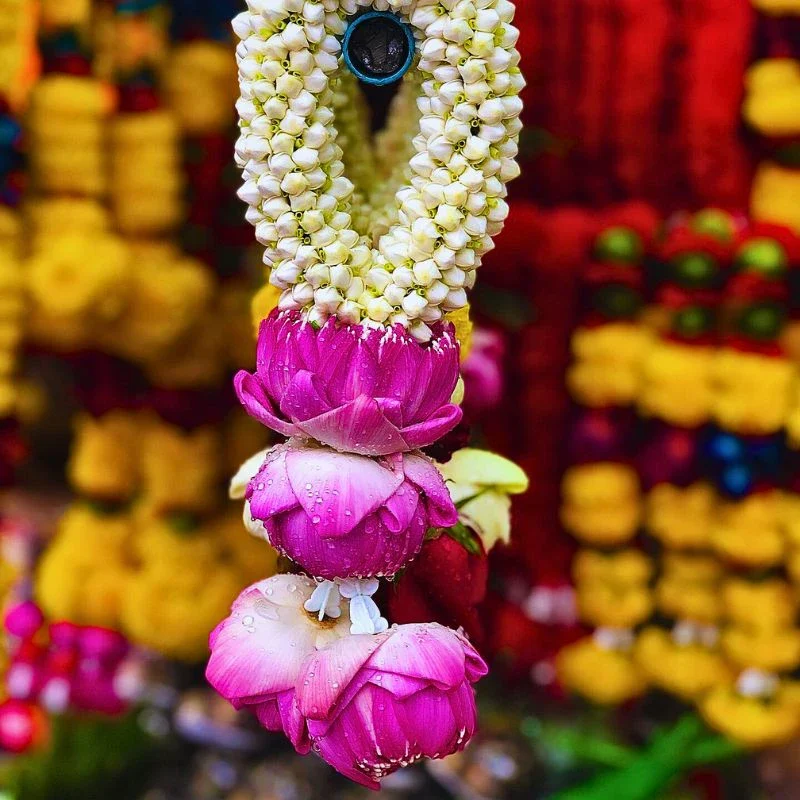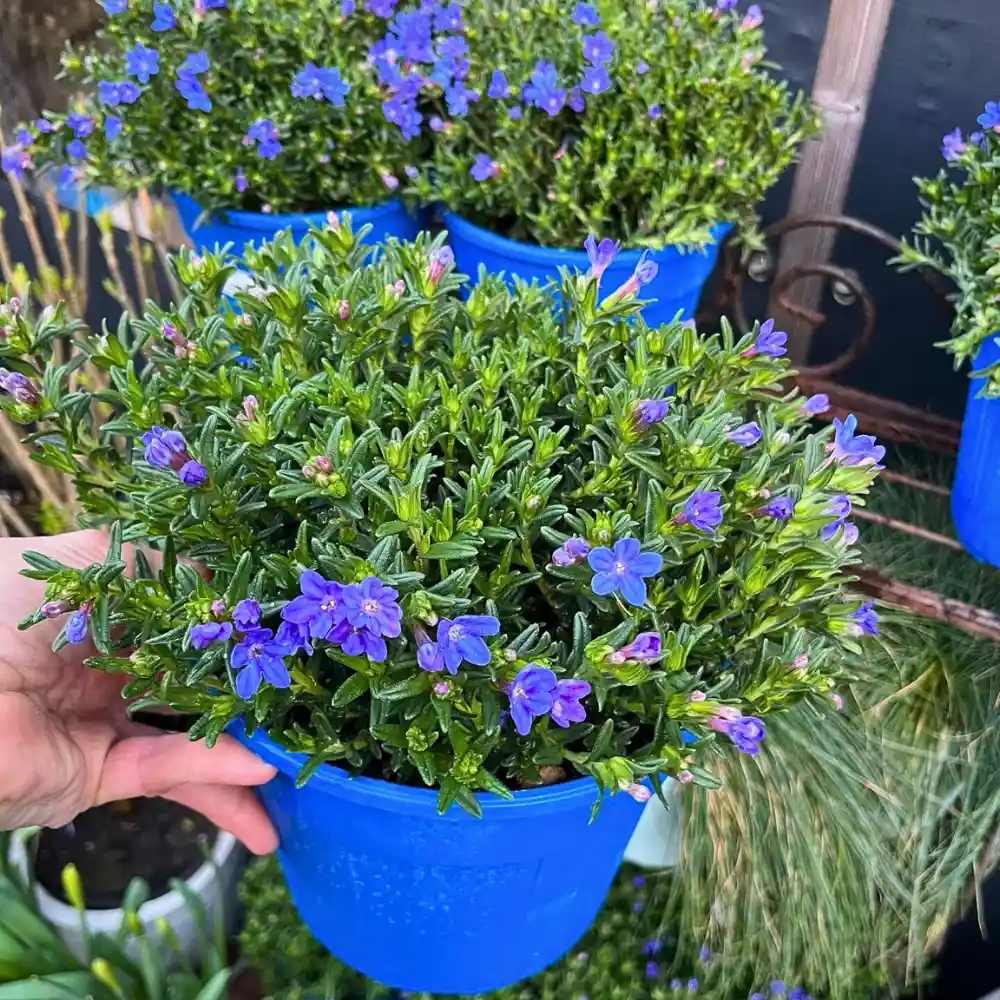When it comes to plants, flowers, and flavors, there is a particular herb that has just the perfect combination of qualities. The Thai Basil, known as Ocimum basilicum var. thyrsiflora, is a herb that not only graces gardens with its quiet beauty but also adds fragrance and aromatic flavors to culinary dishes.
A striking aroma, delightful presence, and bold flavors all make this basil herb, also known as chi neang vorng, anise basil, or licorice basil, a must-have for garden plant lovers. For good reason, it easily is one of those plants you'd be delighted to have in your small backyard garden.
What Is the Thai Basil?
The Ocimum basilicum var. thyrsiflora is a herb that belongs to the mint family, Lamiaceae. It is a close relative of the more common sweet basil (Ocimum basilicum), but with distinct characteristics that set it apart. Essentially, Thai basil is a cultivar or variety of sweet basil, bred and adapted for Southeast Asian culinary use, while sweet basil is cultivated for Mediterranean and Italian cuisine. Thai basil is native to Southeast Asia and is popular in Thai, Vietnamese, and other Southeast Asian cuisines.
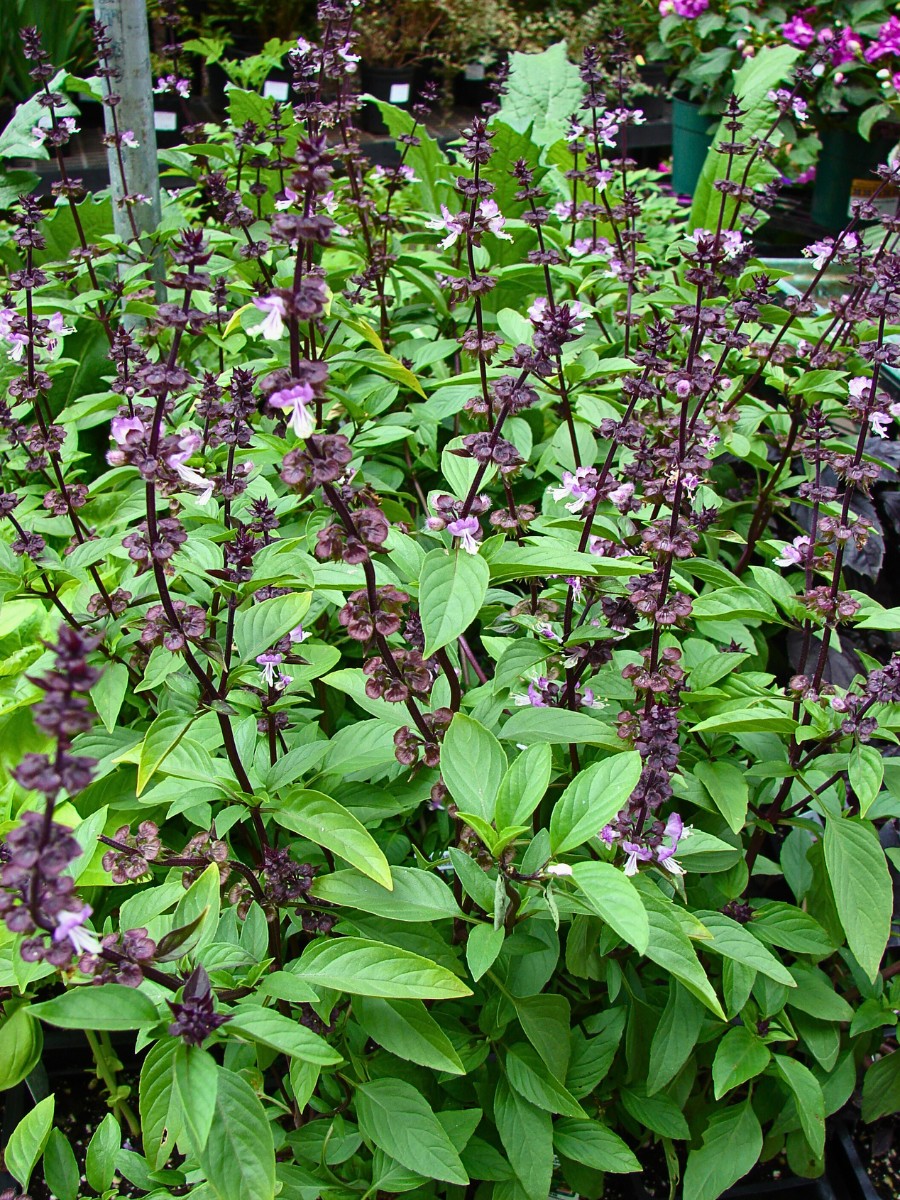
This herb is also known for its striking appearance and delightful fragrance, with lush green leaves tinged with purple. The aroma of the Thai basil is unique. It combines notes of anise, licorice, and mint. The leaves are slightly smaller and have a spicier flavor than sweet basil, with a subtle peppery kick. The herb oozes opulence and indulgence, almost like none other, standing out with distinctive characteristics that set it apart from its peers (a delight to both the garden and the kitchen).
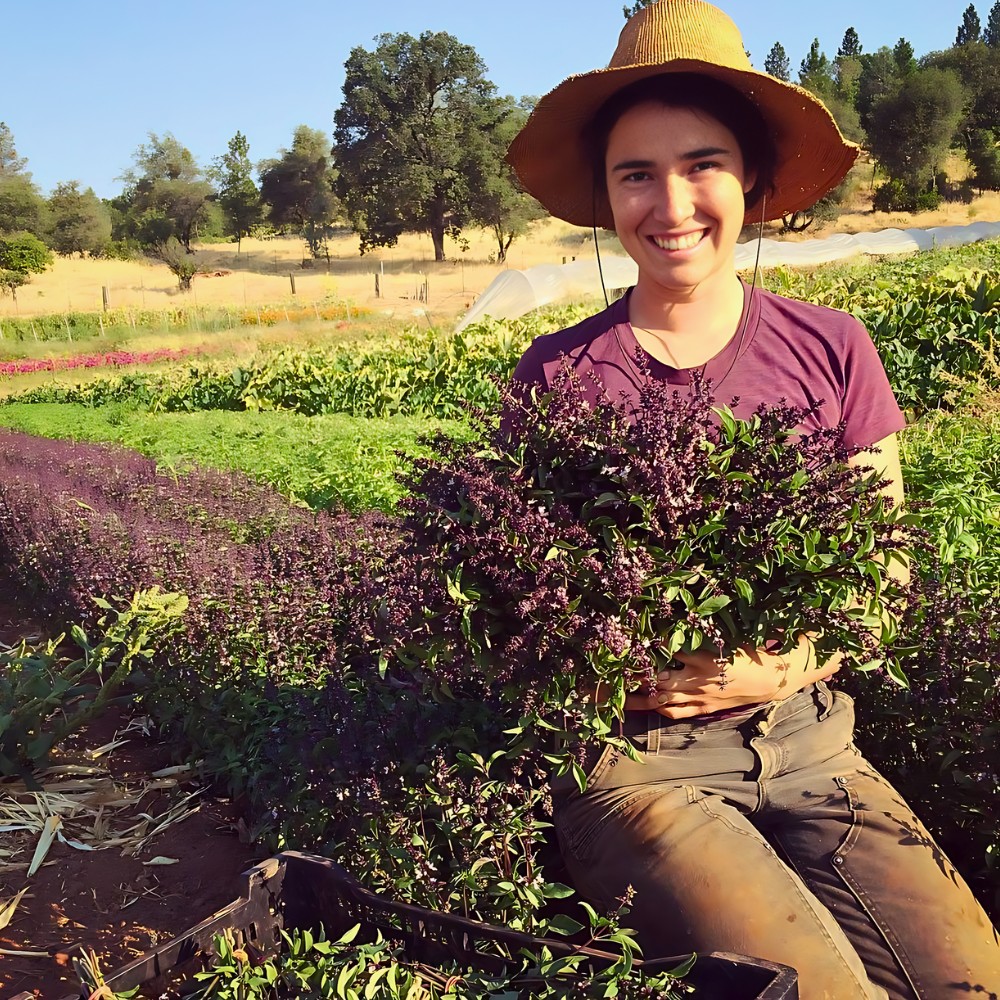
Thai basil's flavor profile is an exquisite blend of notes. Its leaves possess a slightly spicier taste compared to sweet basil, with hints of anise and licorice that, when used, lend a layered flavor and complexity to culinary dishes. With a reputation spanning ages, this herb has been loved for both its culinary and medicinal properties, blending nature's beauty, therapeutic qualities, and gastronomic perfection.
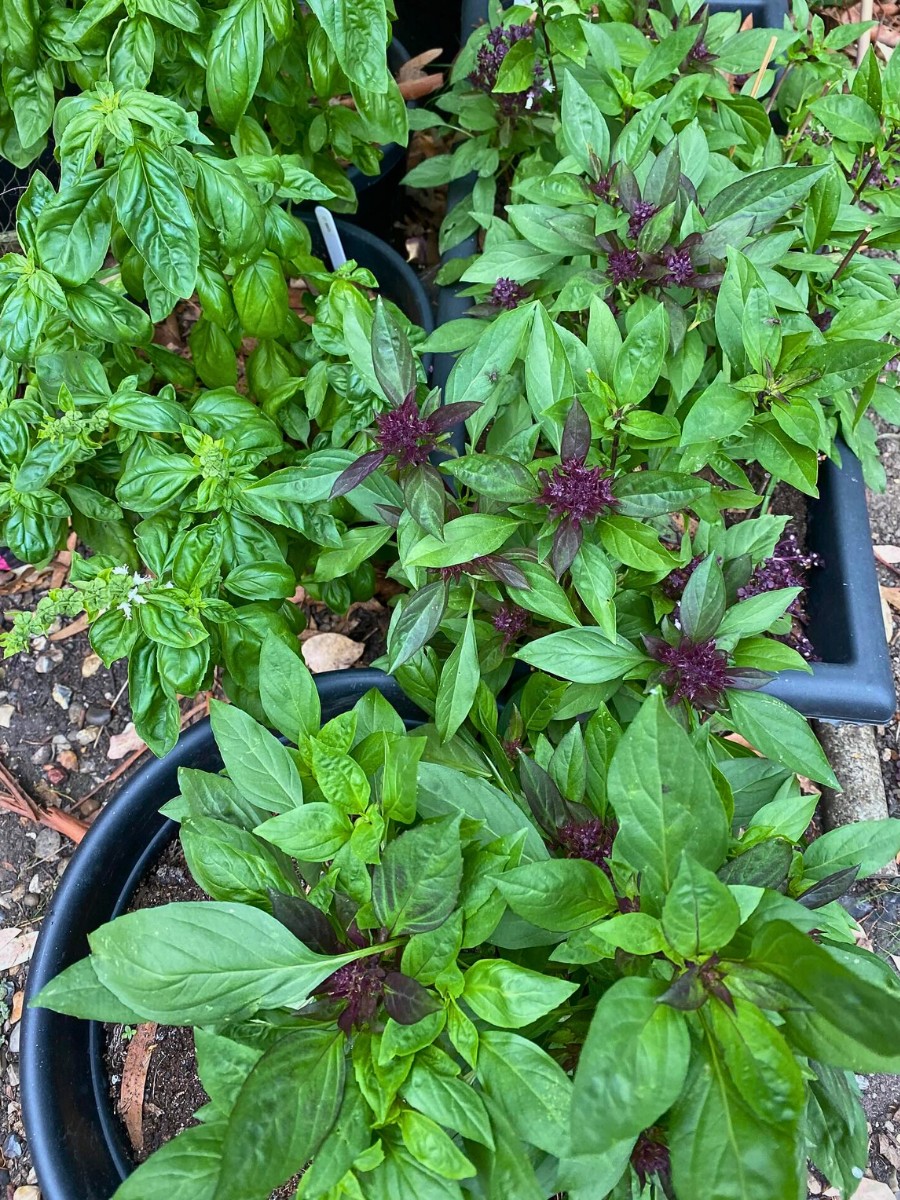
The Versatility of the Thai Basil
But for the most part, the Thai basil is highly rated for its culinary applications. It adds a fresh flavor to different dishes, infusing them with a unique Southeast Asian twist. It is often used in stir-fries, curries, soups, and salads, as well as in marinades and dressings. It pairs exceptionally well with ingredients like chili, garlic, coconut milk, lemongrass, and fish sauce, creating a delightful mix of flavors.
Apart from its culinary uses, this garden plant has also been valued for its medicinal properties. It is believed to have antioxidant, anti-inflammatory, and antibacterial properties, and is sometimes used in traditional herbal remedies. Thus, as one can see, its versatility is not just restricted to dishes, but also to other possibilities and different applications.
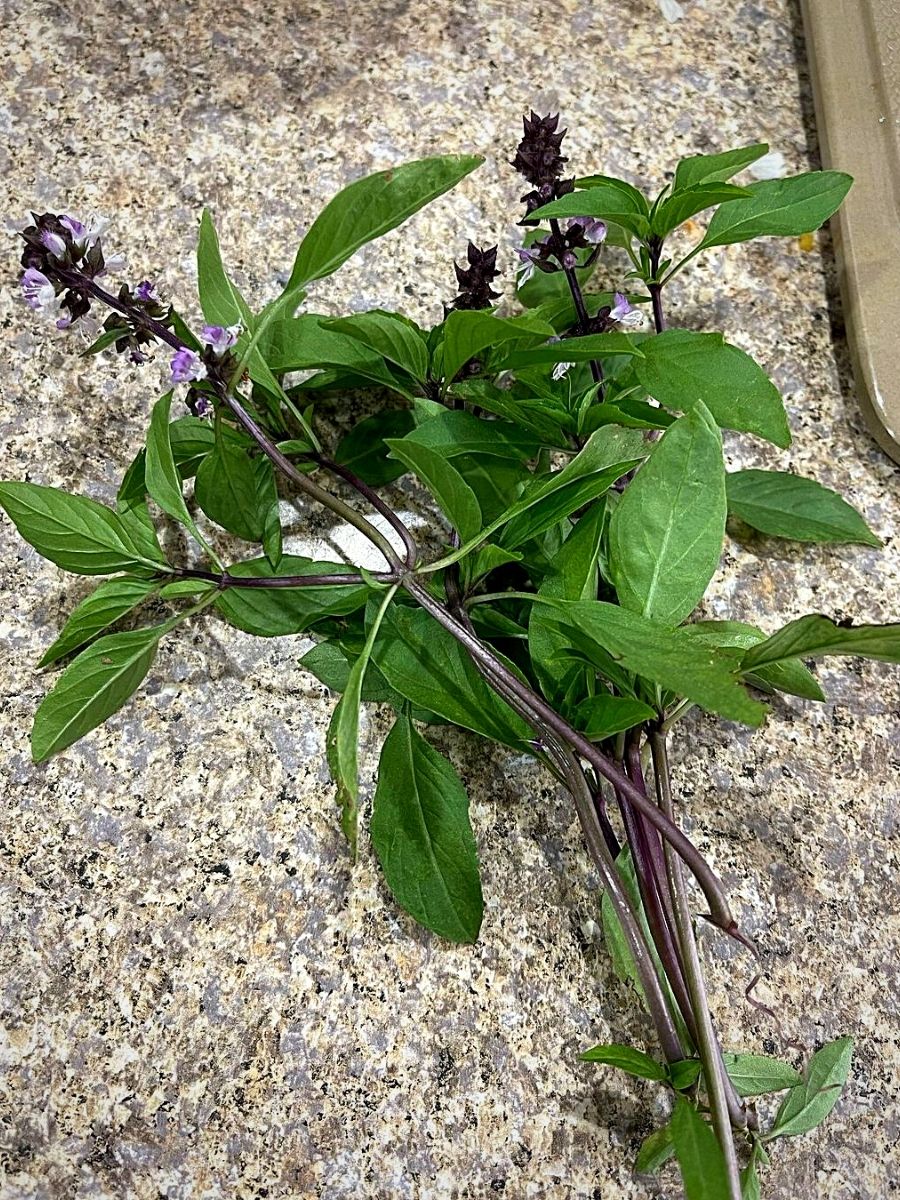
Culinarywise, you can incorporate its flavors into dishes by sprinkling chopped Thai basil atop pizzas or pasta dishes, which adds an aromatic rush in every bite. Additionally, mixing oils or vinegar with Thai basil to create tantalizing dressings and marinades could make your culinary dishes even better.
It all doesn't stop at these savory delights alone. Thai basil works beautifully with sweet creations as well. Its aromatic qualities enhance the sweetness of berries and tropical fruits, adding a subtle minty taste to both desserts and cocktails. With these different, delightful options and uses, you have an opportunity to let your imagination take over as you explore the numerous possibilities that this herb has to offer.
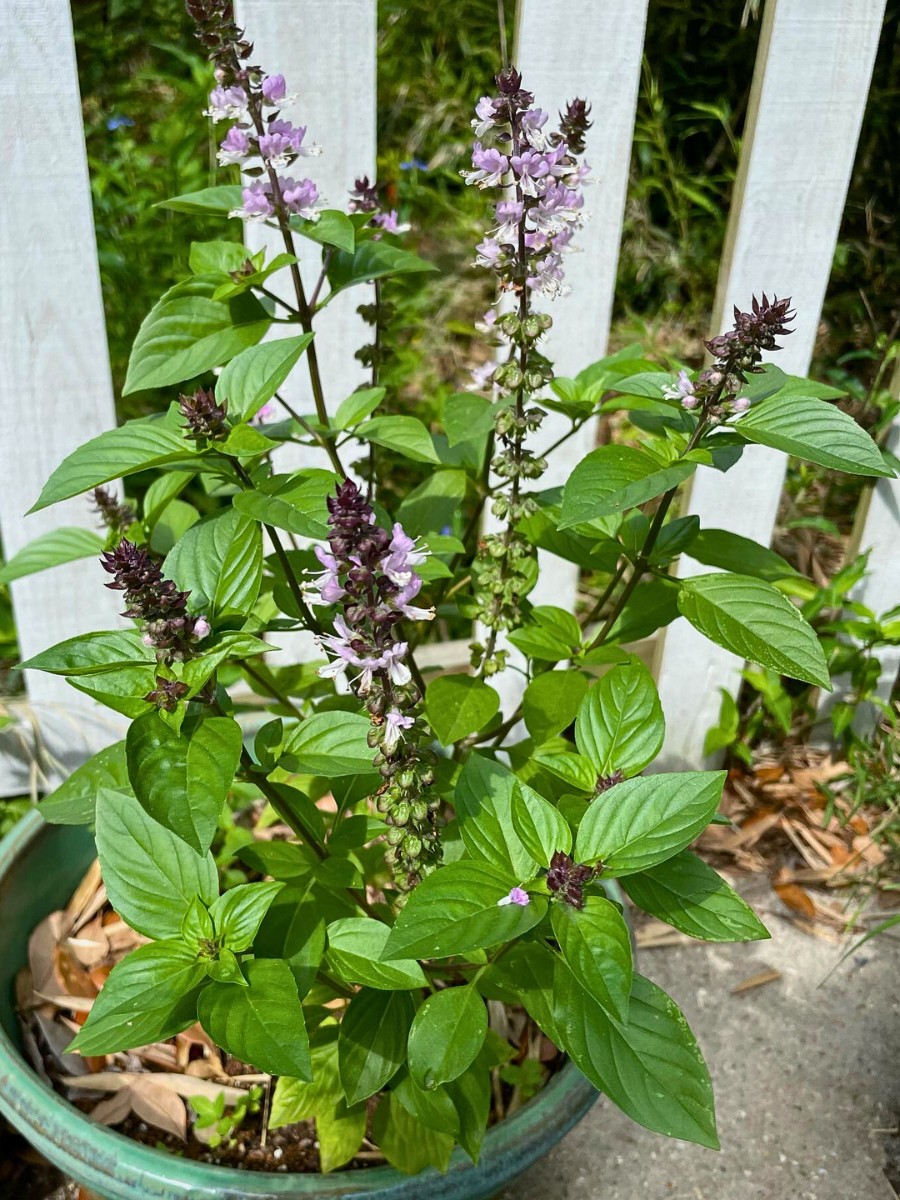
How to Grow and Cultivate the Versatile Thai Basil Garden Plant
For any aspiring gardener with a passion for Thai cuisine, growing Thai basil offers the possibilities for an aromatic experience in whichever way you perceive it. Growing it, this delightful herb thrives in warm climates and requires well-drained soils, abundant sunlight, and tender care.
It can be grown from seeds or propagated through cuttings, and with proper care and attention, the Thai basil plants can reach a height of 30 to 60 cm and produce abundant foliage. Factors such as growing conditions, nutrients, and cultivation methods can influence the plant's final size, however.
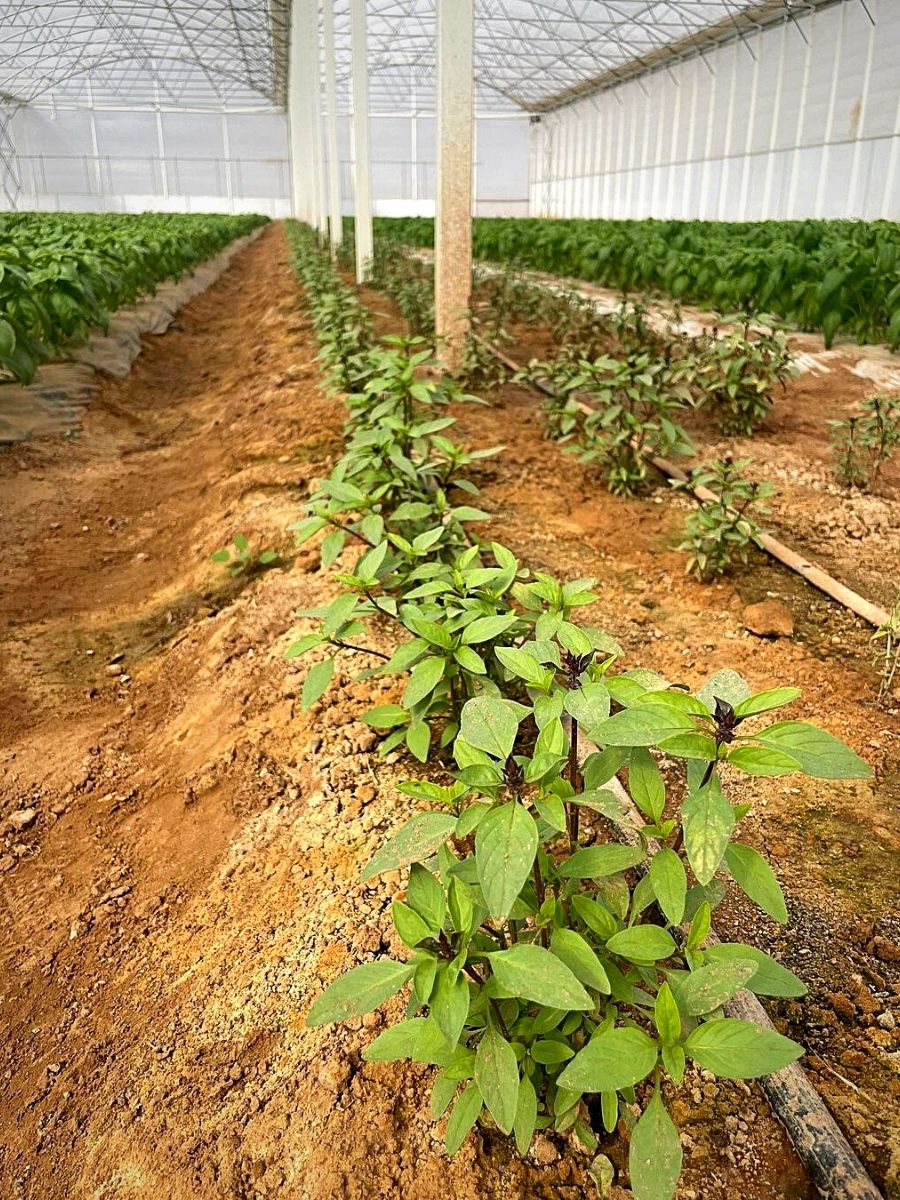
You can therefore start your experience of growing the Thai basil by sowing its seeds in a pot or directly in the ground just after the frosty days have passed. Following the right guidelines guarantees that the lush foliage of Thai basil will flourish under your nurturing hands. Such include regular watering along with the use of occasional organic fertilizer, guaranteeing its growth.
This means plenty of those aromatic herbs in your garden, rewarding you not only with their visual splendor, aromatic presence, and ingredients for your cuisines, but also with the satisfaction of growing your own Thai basil; nurturing and watching the plants grow from seed to full maturity.

How to Preserve Your Thai Basil’s Aromatic Essence
When your garden flourishes with Thai Basil herbs, it is essential to know the secrets of preserving their aromatic essence, especially when you harvest them. With proper storage, you can extend the herb's freshness and fragrance, ensuring a consistently fresh and delightful supply of the herbs for whichever purpose you have in mind.
One simple method involves placing the freshly harvested Thai Basil sprigs with their leaves in a glass of water, quite like displaying them in a simple vase. This way, you can enjoy the herb's invigorating essence for several days. Alternatively, freezing Thai Basil leaves provides an excellent long-term storage solution. You can freeze the leaves whole or finely chopped by sealing them in an airtight container to retain their fresh color and distinctive taste.
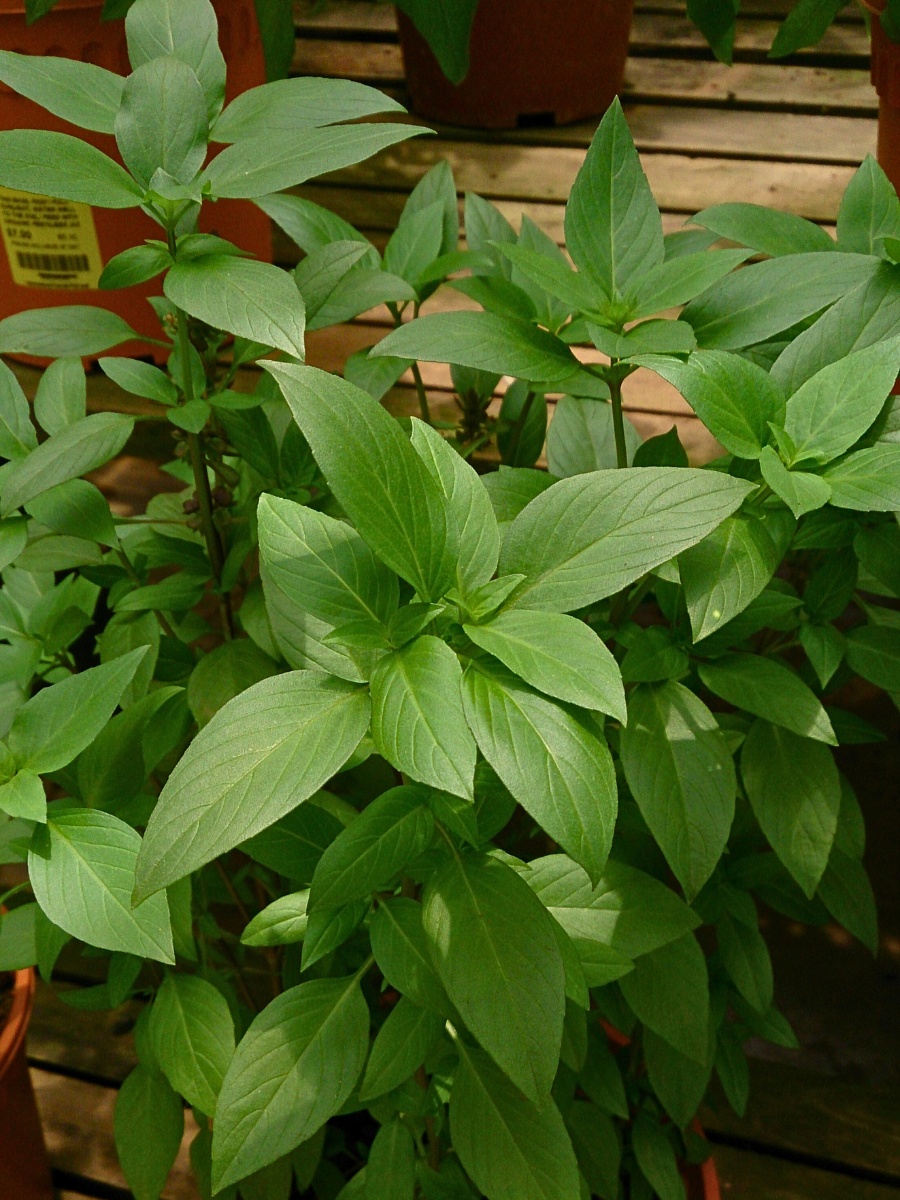
Another creative approach is to freeze Thai Basil in ice cube trays, adding some water or oil. These frozen cubes can be easily used in cuisines and culinary dishes. Their fresh taste and flavor linger for some time, in this case.
Where to Buy Thai Basil
Finding Thai basil to use is quite easy. Asian-themed markets and specialty grocery stores always have them in stock. Alternatively, local farmers' markets offer an opportunity to connect with growers passionate about providing some of nature's finest ingredients. For those seeking a more immersive experience, growing your own Thai basil from seed is quite an experience they would love.
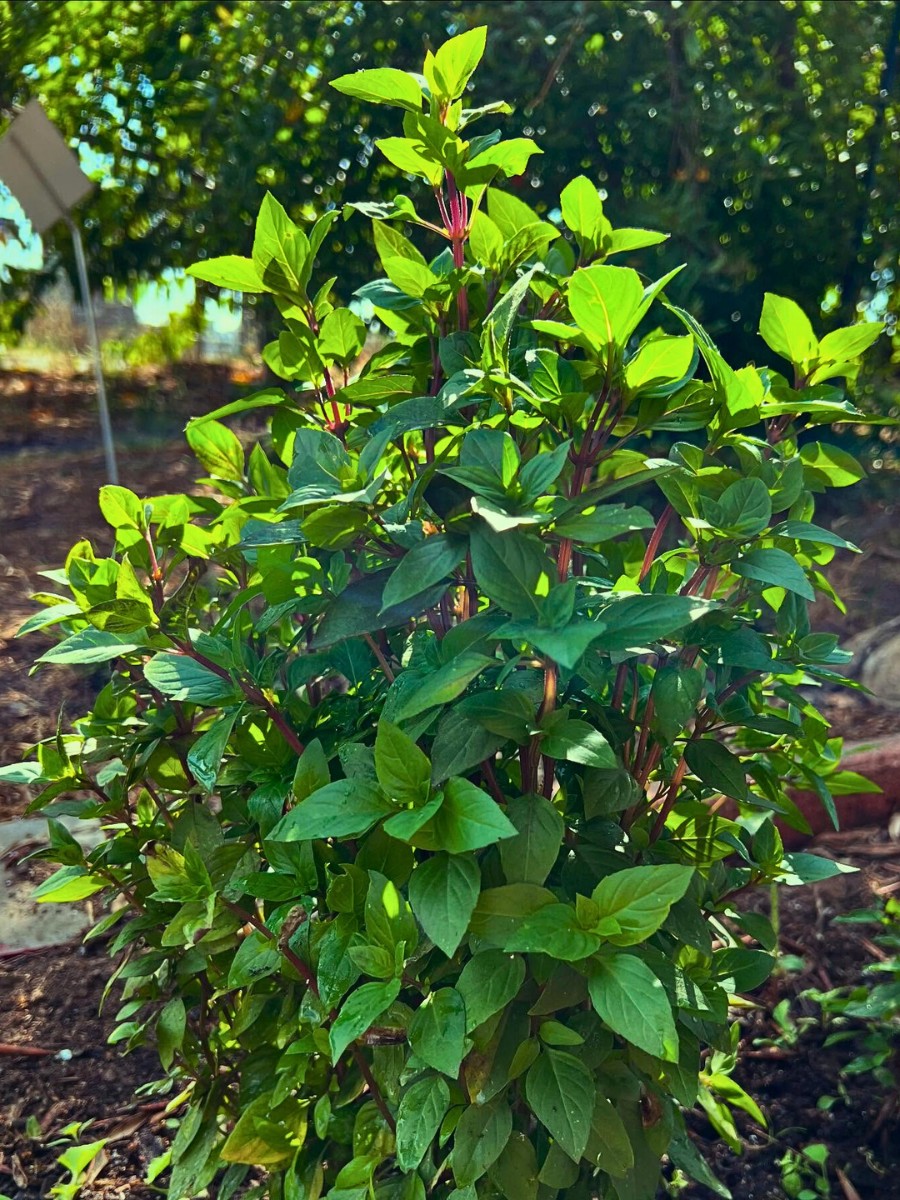
Nurseries and online seed suppliers offer an assortment of Thai basil varieties, allowing you to handpick the perfect plants for your garden. Growing this herb from seed to harvest makes you an active participant in the creation of the Thai basil, cultivating the quiet beauty, fragrance, and flavors that awaken the senses.
Thai Basil Is Where Garden Meets Kitchen
In essence, the beauty of the Thai basil is in how effortlessly it bridges two worlds that don't always overlap. In the garden, it asks for little other than warmth and water, and gives you lush growth and those striking purple flower spikes that add vertical interest to any planting scheme.
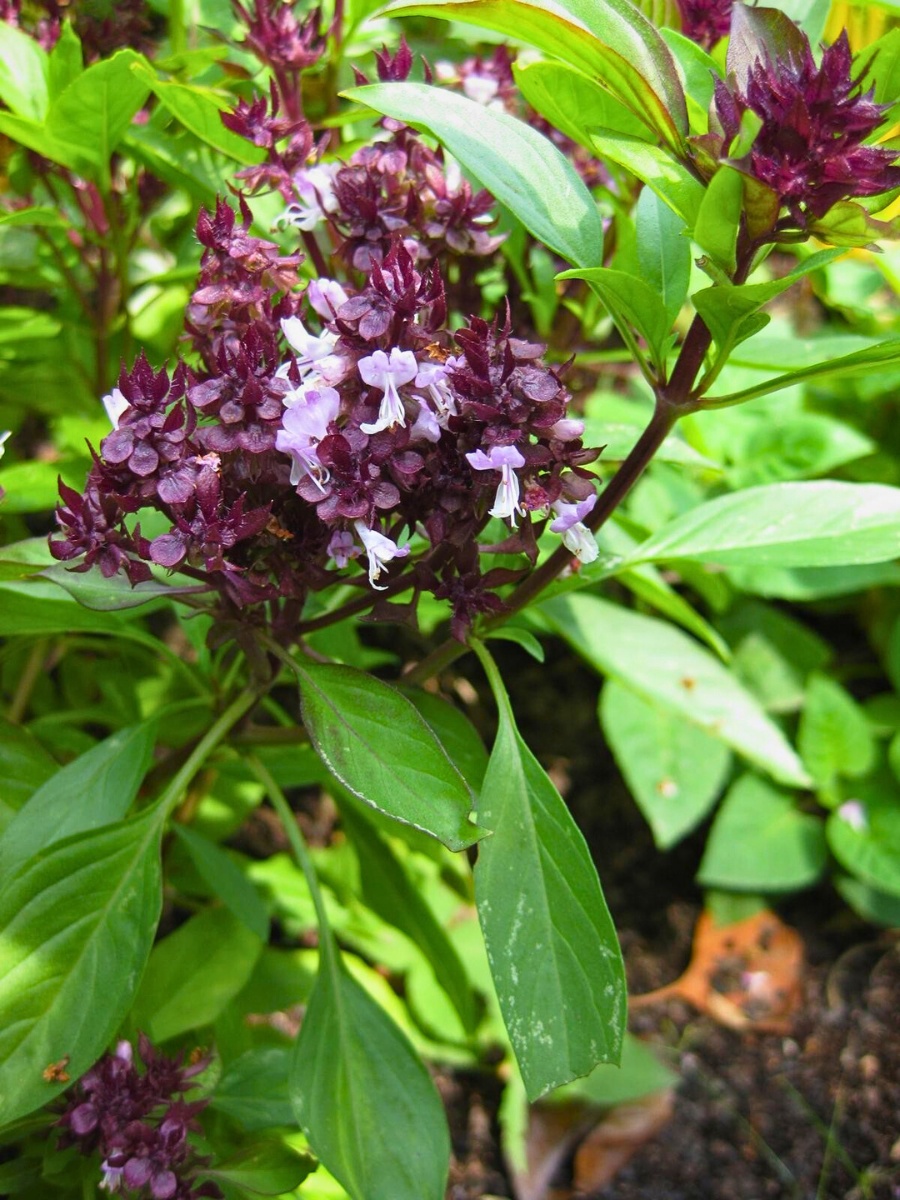
Harvest a handful of leaves, and suddenly you have the key ingredient that can make a simple meal something more exciting. That distinctive anise-licorice punch works magic in traditional Thai curries and Vietnamese pho, but it is equally at home in contemporary fusion dishes or even muddled into summer cocktails. This herb doesn't discriminate between being admired and being useful. It simply does both remarkably well.
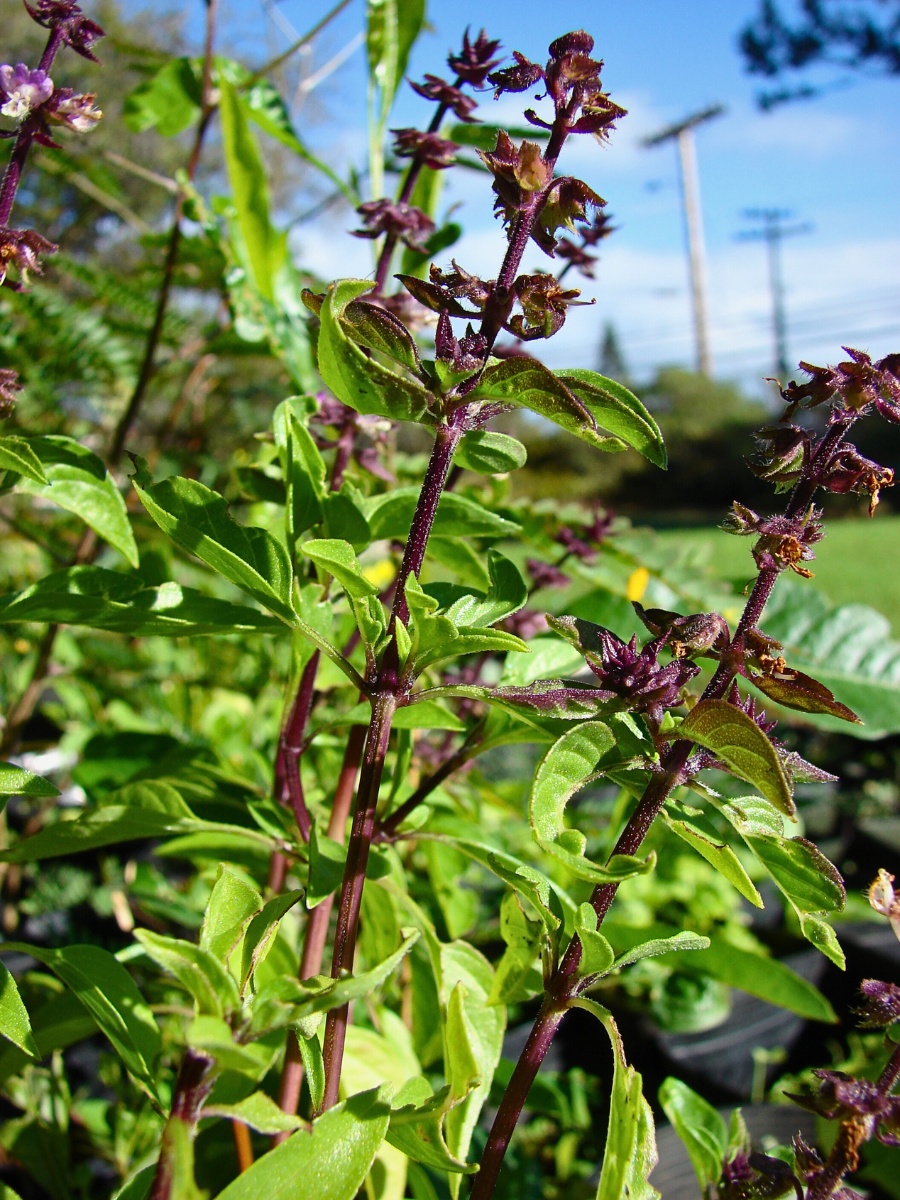
For anyone who loves cooking with fresh herbs or appreciates plants that earn their place through both form and function, Thai basil delivers on every front. It is one of those rare herbs whose growing is as satisfying as its eating, and the eating makes one grateful they took the time to grow it.
Header image by Risacher.

